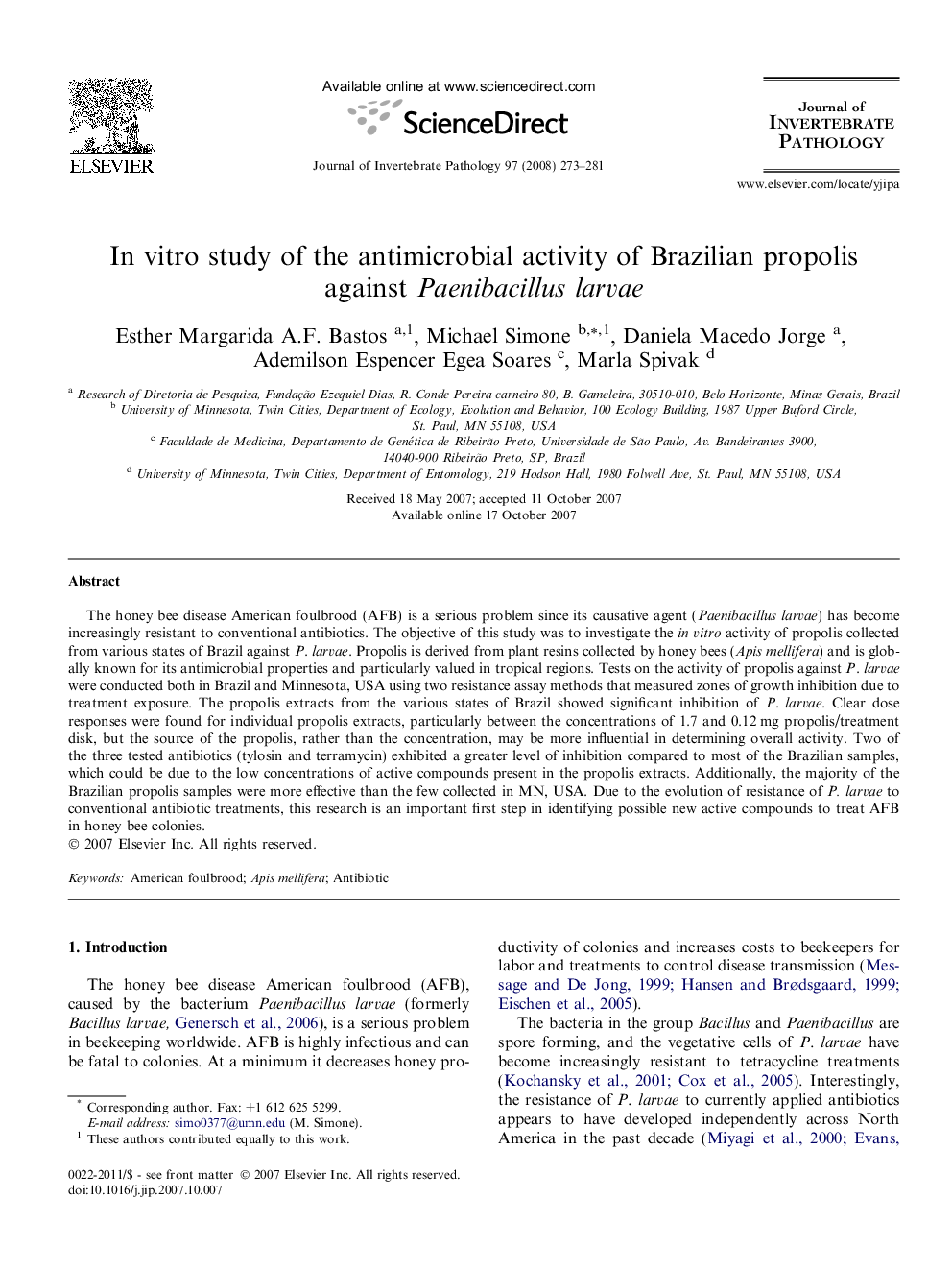| Article ID | Journal | Published Year | Pages | File Type |
|---|---|---|---|---|
| 4558570 | Journal of Invertebrate Pathology | 2008 | 9 Pages |
The honey bee disease American foulbrood (AFB) is a serious problem since its causative agent (Paenibacillus larvae) has become increasingly resistant to conventional antibiotics. The objective of this study was to investigate the in vitro activity of propolis collected from various states of Brazil against P. larvae. Propolis is derived from plant resins collected by honey bees (Apis mellifera) and is globally known for its antimicrobial properties and particularly valued in tropical regions. Tests on the activity of propolis against P. larvae were conducted both in Brazil and Minnesota, USA using two resistance assay methods that measured zones of growth inhibition due to treatment exposure. The propolis extracts from the various states of Brazil showed significant inhibition of P. larvae. Clear dose responses were found for individual propolis extracts, particularly between the concentrations of 1.7 and 0.12 mg propolis/treatment disk, but the source of the propolis, rather than the concentration, may be more influential in determining overall activity. Two of the three tested antibiotics (tylosin and terramycin) exhibited a greater level of inhibition compared to most of the Brazilian samples, which could be due to the low concentrations of active compounds present in the propolis extracts. Additionally, the majority of the Brazilian propolis samples were more effective than the few collected in MN, USA. Due to the evolution of resistance of P. larvae to conventional antibiotic treatments, this research is an important first step in identifying possible new active compounds to treat AFB in honey bee colonies.
